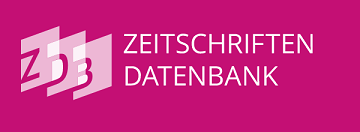Code of Ethics
Journal of Energy is dedicated to following the best practices on ethical matters, errors, and retractions. The prevention of publication malpractice is one of the important responsibilities of the editorial board. Any kind of unethical behavior is not acceptable, and the Journal does not tolerate plagiarism in any form.
The Editorial Board of this publication is committed to the highest ethical and professional conduct:
- to promote the understanding of energy technology, markets, application, and potential consequences on the society,
- to avoid real or perceived conflicts of interest, whenever possible and to disclose them to affected parties, when they exist,
- to be honest and realistic in stating claims or estimates based on available data,
- to reject bribery in all its forms,
- to seek, accept, and offer honest reviews of technical work and to credit properly the contributions of reviewers,
- to treat fairly all authors, regardless of factors such as race, religion, gender, disability, age or national origin,
- to avoid injuring others, their property, reputation, or employment by false or malicious actions.
Ethic statements of the journal are based on the COPE’s Best Practice Guidelines for Journal Editors.
Plagiarism
The Journal of Energy is committed to publishing only original material, i.e., material that has neither been published elsewhere nor is under review elsewhere. Manuscripts that are found to have been plagiarized from a manuscript by other authors, whether published or unpublished, will be rejected immediately. The Journal of Energy uses iThenticate plagiarism detection software for all submitted papers.
The Journal of Energy uses iThenticate plagiarism detection software for all submitted papers.
Duplicate Submission
If authors have used their own previously published work, or work that is currently under review, as the basis for a submitted manuscript, they are required to cite the previous work and indicate how their submitted manuscript offers novel contributions beyond those of the previous work. If these contributions are not significant in comparison with the previous work, the manuscript will be rejected immediately.
Citation Manipulation
Submitted manuscripts that are found to include citations whose primary purpose is to increase the number of citations of a given author’s work, or of articles published in a particular journal, will be rejected immediately.
Improper Author Contribution or Attribution
All listed authors must have made a significant scientific contribution to the research presented in the manuscript and approved all its claims. It is important to list everyone who made a significant scientific contribution, including students and laboratory technicians.
Conflict of interest
Journal of Energy encourages all authors and reviewers to report any potential conflict of interest to ensure complete transparency regarding the preparation and reviewing the manuscript (research funding, grants, sponsorship, competing interests, etc.). The conflict of interest exists when an author (or the author’s institution) has financial (employment, consultancies, stock ownership, honoraria, and paid expert testimony) or personal relationship, academic competition, or intellectual passion that inappropriately influences his actions. In order to avoid any potential doubt about the conflict of interest for the potential authors of articles that are employed by the publisher (Hrvatska elektroprivreda and HRO CIGRE), these articles will be reviewed by international reviewers, and any publishing decision will be discussed in close cooperation amongst editor-in-chief and section editors and taken by a qualified majority vote.











